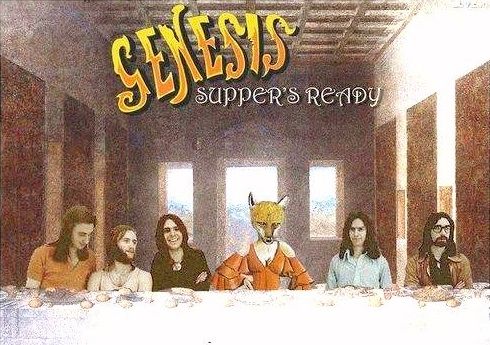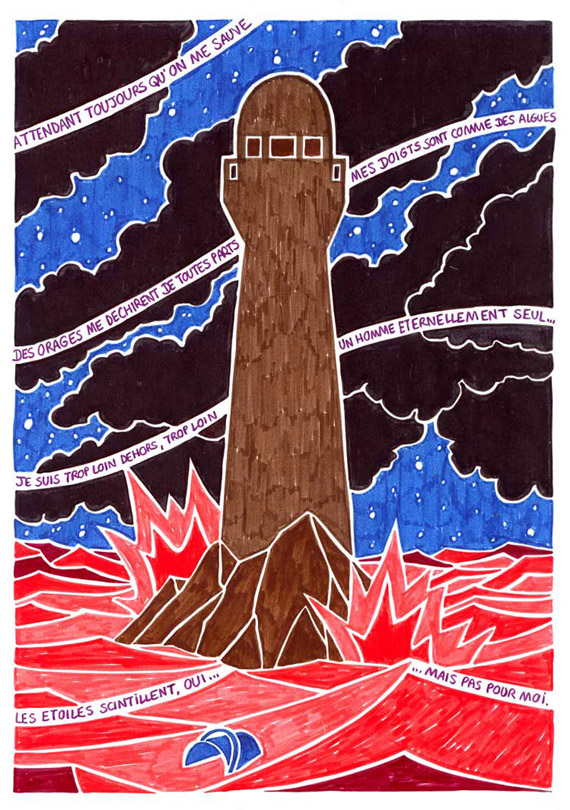
Welcome to the end of the Top500 project, and welcome to the end of the world. Yes, they did it. They packed all their love and hate of church and heaven/hell together, took a number of embryonic songs that seemed unrelated and welded them together to one single rock opera. They basically did what all the major prog bands did in those days: producing one magnum opus, but this one was different.
“Supper’s Ready” (click on pic to watch the illustrated version) is heavy on both the music and the lyrics and achieves a level of bombastic that even surpasses the #2 on this list. Thus it comes closer to an actual opera than any other song. Also, because of the war-and-piece storyline, it also comes close to GoT- and Marvel-like fantasy.
But in the beginning and in the end it’s a song about the Last Supper, not of the first but rather of the second coming of Christ. There’s no way to get up from the supper but through the apocalypse, but with a happy end.
Musically there’s are so many experiments that if Peter Gabriel hadn’t left Genesis 3 years later, they could have gleaned new songs from this one for the rest of their career. The quality of the musicians is such that the final product is impeccable. They reached perfection probably even without knowing.
This perfection more or less was my introduction to Genesis in 1977. Played live it sounds even more impressive, and they did play it live a LOT. They must have liked it just as much as the audience did.
The Apocalypse in 9/8 section of the song are 6 minutes of the best the world of rock has ever produced. Tony Banks’ keyboard solo and Phil Collins’ drumming remain unequaled. Even after 50 years.
The finale marks the victory of Peter Gabriel’s vocal qualities. When he sings about the New Jerusalem you can hear the crowd yelling along and believing they’re going to be saved. Gabriel didn’t want followers in the end. He descended from the mountain and went to make some more music.
Every time I hear this song I realize that it’s the whole of humanity playing along. This is what the human race is capable of, sound and word-wise, thought and emotion-wise. These guys happened to record it.
The 16 1/2-month journey is over. 500 songs, 500 stories. It was the greatest pleasure of my life. Don’t know if I’ll do this again, but I still have an appetite. The last supper hasn’t been served yet.
I have lived for 60 years now, and my musical harvest is here to be enjoyed. See you perhaps in 2024 when the next Album Top100 is due, or another time with more music. Keep on listening!
Love, Ronald








